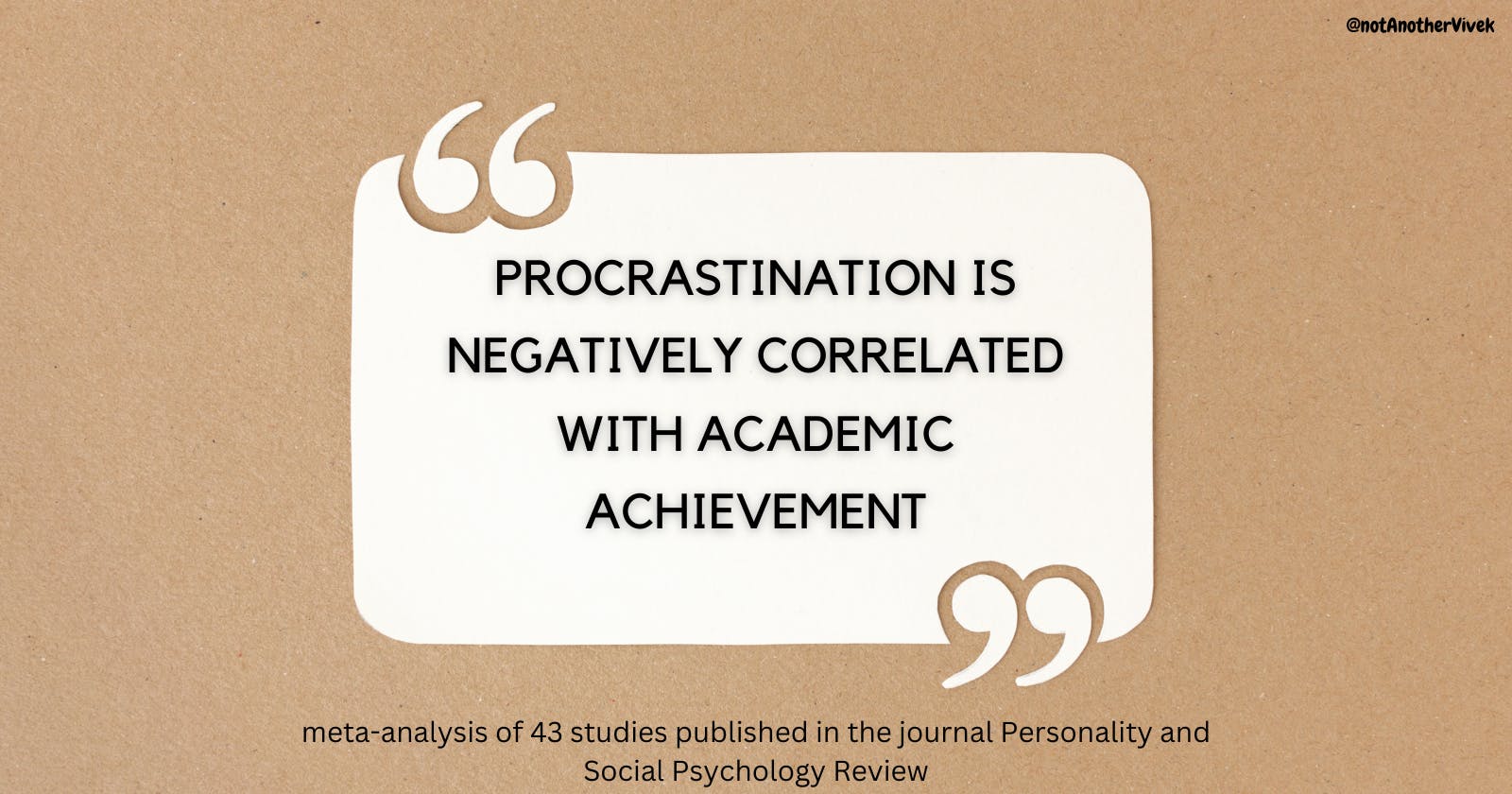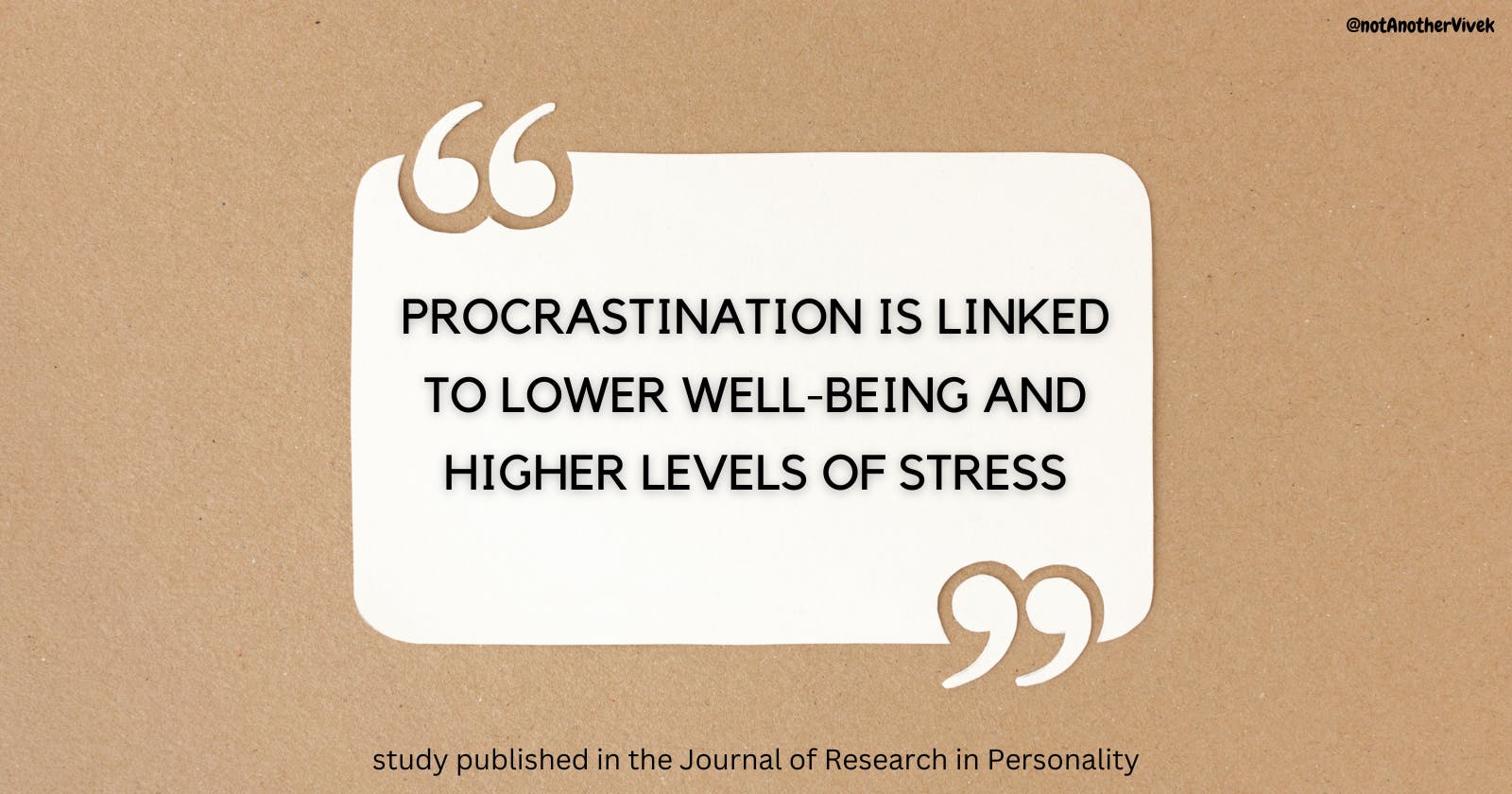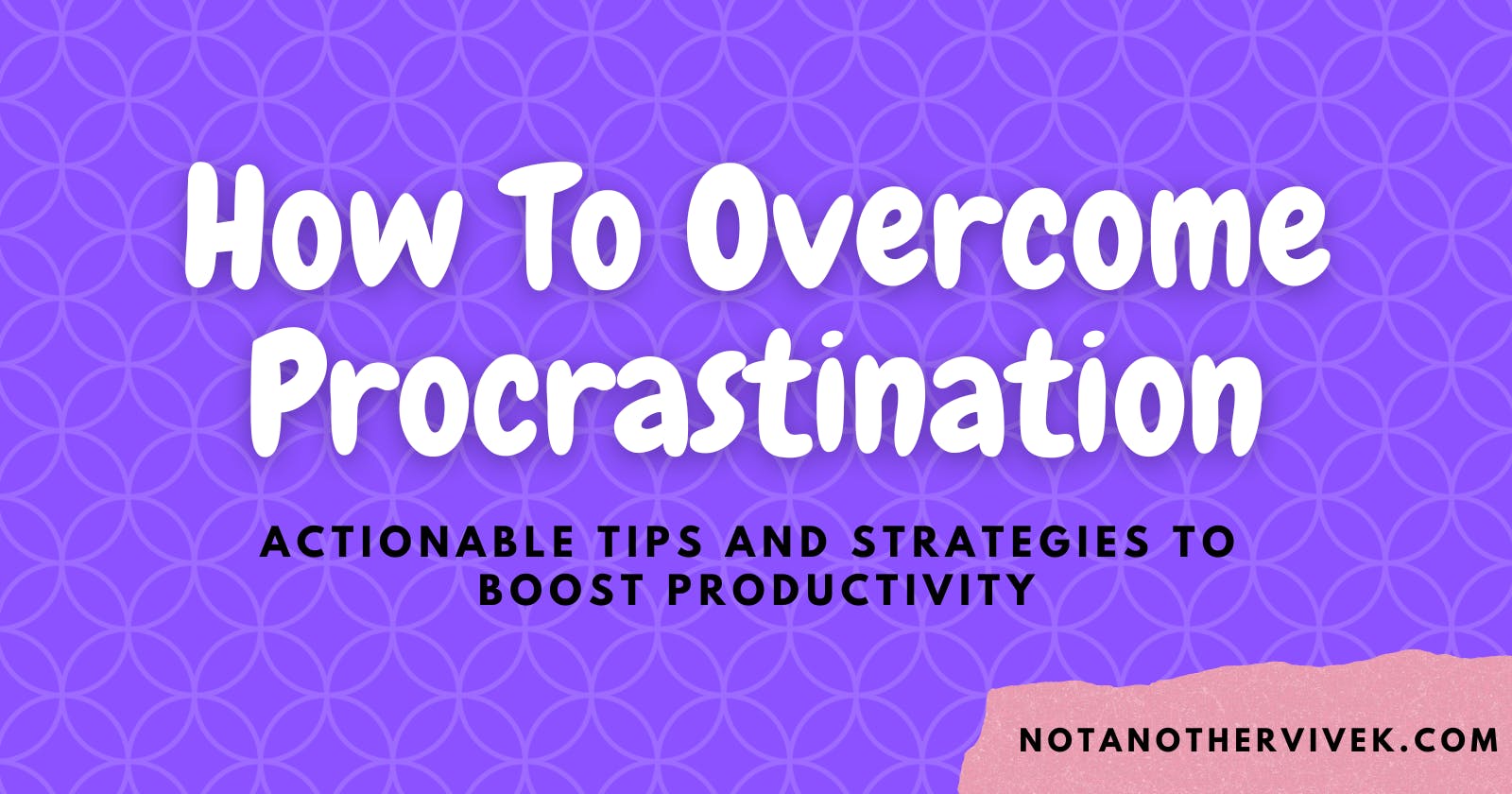Strategies and Tips to Overcome Procrastination and Increase Productivity
a quick look at common reasons behind why we put off things for later, and how that habit can be overcome
Procrastination is something that we have all experienced at some point in our lives. It's that feeling of knowing that we have something important to do, but instead, we put it off until the last possible moment.
Unfortunately, procrastination can have serious consequences, from missed deadlines and decreased productivity to increased stress and anxiety.
But, why do we procrastinate, and what can we do to overcome it?
In this article, we'll explore the common reasons for procrastination, how it affects people, and what can be done to prevent going into the habit of procrastinating.

Common Reasons for Procrastination
There are several reasons why people procrastinate, and these can vary depending on the individual and the task at hand. Here are some of the most common reasons why people put things off:
Fear of Failure
One of the most significant reasons why people procrastinate is the fear of failure. When we are faced with a task that we perceive as difficult or challenging, we may worry that we won't be able to do it well, and that fear can prevent us from getting started.
Lack of Motivation
Another reason why people procrastinate is a lack of motivation. If we don't feel excited or interested in a task, it can be challenging to get motivated to start.
Perfectionism
Perfectionism is another common reason why people procrastinate. When we set impossibly high standards for ourselves, we may worry that we won't be able to meet them, and that can lead to procrastination.
Overwhelm
When we have a lot of tasks to do, it can be overwhelming, and that can make it difficult to know where to start. This feeling of overwhelm can lead to procrastination as we put off starting any task at all.

How Procrastination Affects People
Procrastination can have significant consequences for both our personal and professional lives. Here are some of the ways that procrastination can affect us:
Decreased Productivity
Procrastination can lead to decreased productivity as we put off important tasks and waste time on less important ones.
Missed Deadlines
Procrastination can also lead to missed deadlines, which can have serious consequences, such as lost opportunities or damaged relationships with colleagues or clients.
Increased Stress and Anxiety
When we procrastinate, we may worry about the task at hand, which can lead to increased stress and anxiety.
Lower Self-Esteem
Procrastination can also lead to lower self-esteem, as we may feel guilty or ashamed about not getting things done.
How to Overcome Procrastination
Overcoming procrastination is not easy, but it is possible to try and reduce it's recurrence. Here are some tips and strategies to help you boost productivity and get things done:
Set Goals and Prioritize
One way to overcome procrastination is to set clear goals and prioritize your tasks. Write down what you need to do and prioritize them based on their importance and urgency.
Break Tasks into Smaller Steps
When you have a large task to do, it can be overwhelming. Breaking it down into smaller, more manageable steps can make it less daunting and help you get started.
Eliminate Distractions
Distractions can be a significant barrier to productivity. Try to eliminate distractions, such as social media, emails, or phone calls, while you work on important tasks.
Use the Pomodoro Technique
The Pomodoro technique is a time management technique that involves working for a set amount of time (usually 25 minutes) and taking a short break before starting again. This can help you stay focused and avoid burnout.
Find Your Motivation
If you're struggling to get motivated, try to find ways to make the task more interesting or enjoyable. For example, if you're writing a report, try to find an angle that interests you or approach it creatively.
Overcome Perfectionism
Perfectionism can be a significant barrier to getting things done. To overcome perfectionism, try to focus on progress, not perfection. Celebrate small wins and keep moving forward.
Practice Self-Care
Taking care of yourself is essential for productivity. Make sure you're getting enough sleep, eating well, and taking breaks when you need them.
Use Positive Self-Talk
Negative self-talk can lead to self-doubt and procrastination. Try to use positive self-talk instead, such as "I can do this" or "I am capable."
Get an Accountability Partner
Having someone to hold you accountable can be a powerful motivator. Find a friend, colleague, or coach who can help you stay on track and check in with you regularly.
Seek Professional Help
If you're struggling with chronic procrastination, it may be helpful to seek professional help. A therapist or coach can help you identify the underlying causes of your procrastination and develop strategies to overcome it.

Procrastination is a common issue that can have significant consequences for productivity, well-being, and success. But, with persistence and effort, you can overcome procrastination and achieve your goals.
As Dale Carnegie said, "Inaction breeds doubt and fear. Action breeds confidence and courage. If you want to conquer fear, do not sit at home and think about it. Go out and get busy."

